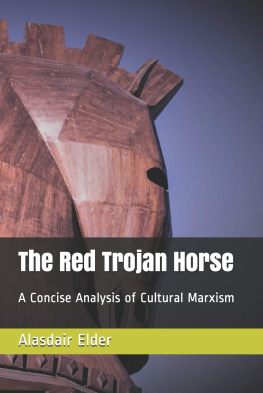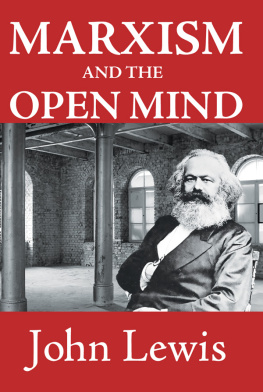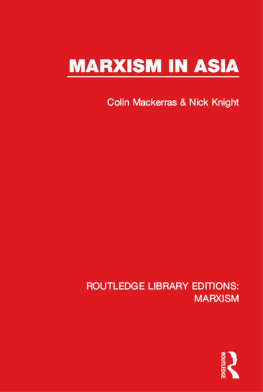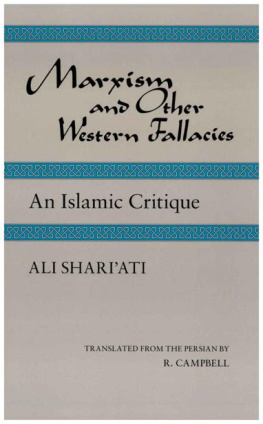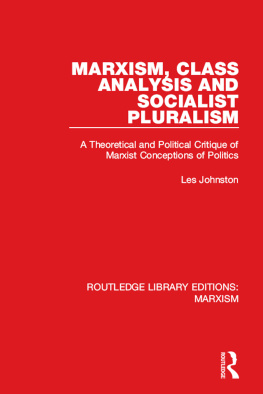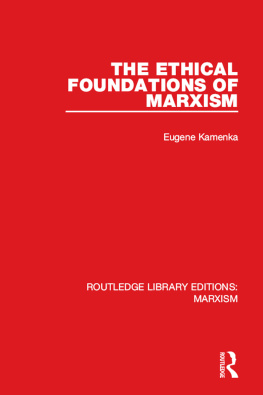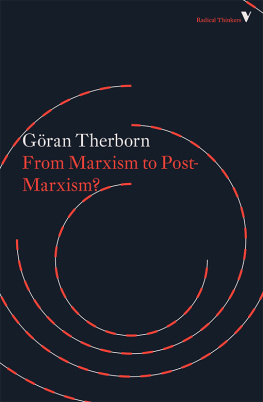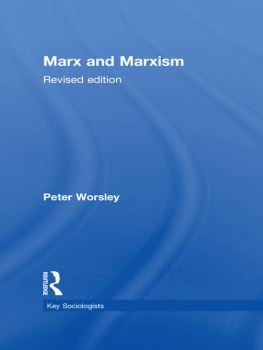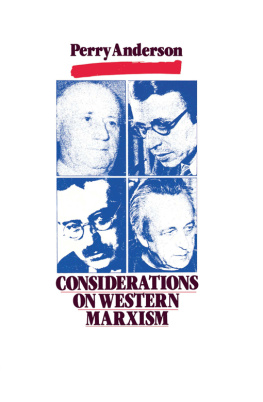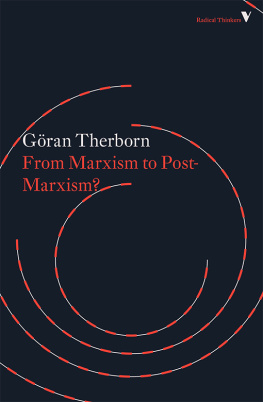Alasdair Elder - The Red Trojan Horse: A Concise Analysis of Cultural Marxism
Here you can read online Alasdair Elder - The Red Trojan Horse: A Concise Analysis of Cultural Marxism full text of the book (entire story) in english for free. Download pdf and epub, get meaning, cover and reviews about this ebook. year: 2017, publisher: Createspace Independent Publishing Platform, genre: Religion. Description of the work, (preface) as well as reviews are available. Best literature library LitArk.com created for fans of good reading and offers a wide selection of genres:
Romance novel
Science fiction
Adventure
Detective
Science
History
Home and family
Prose
Art
Politics
Computer
Non-fiction
Religion
Business
Children
Humor
Choose a favorite category and find really read worthwhile books. Enjoy immersion in the world of imagination, feel the emotions of the characters or learn something new for yourself, make an fascinating discovery.
- Book:The Red Trojan Horse: A Concise Analysis of Cultural Marxism
- Author:
- Publisher:Createspace Independent Publishing Platform
- Genre:
- Year:2017
- Rating:3 / 5
- Favourites:Add to favourites
- Your mark:
The Red Trojan Horse: A Concise Analysis of Cultural Marxism: summary, description and annotation
We offer to read an annotation, description, summary or preface (depends on what the author of the book "The Red Trojan Horse: A Concise Analysis of Cultural Marxism" wrote himself). If you haven't found the necessary information about the book — write in the comments, we will try to find it.
Since the 1960s, a war has been raging. It is not a war between armies or nations; it is a war of ideas. It is being fought between the values of the Enlightenment, which have built Western civilization into the greatest civilization in human history, and the values of Marxism. Although traditional Marxism, or Classical Marxism, has been effectively extinct since the 1990s, Cultural Marxism has spread like a disease through every aspect of Western society, threatening to bring that society crashing down.Today, Western politics, education, and even popular entertainment are saturated with Marxist values. An atmosphere of authoritarian intolerance for honest discourse and freedom of speech is now rife. The purpose of this book is to provide the reader with a compact, yet comprehensive, source of reference for understanding the phenomenon of Cultural Marxism, both in the context of history and in terms of the present day.
Topics covered by this book include:
- A history of the philosophical evolution of Cultural Marxism, from the philosophies of Kant and Hegel to Classical Marxism, to the counter-culture of the 1960s.
- How the Frankfurt School developed Cultural Marxism, by combining Classical Marxism with the pseudointellectual schools of Freudian psychoanalysis and Boasian anthropology.
- The similarities and differences between Classical and Cultural Marxism.
- How Cultural Marxism gained a foothold in Western academia by hijacking identity politics.
- The formula of Critical Theory, which allows Cultural Marxists to manipulate and control discourse, through the intellectually dishonest redefining of words.
- How Cultural Marxism can perpetuate itself by establishing self-reinforcing cultural and economic feedback loops.
- How Cultural Marxism has created an authoritarian intolerance for debate through the creation of political correctness.
- The ideological alliance that Cultural Marxism has engineered between the political Left and radical Islam.
- The creation of the modern-day Marxist foot soldier; the Social Justice Warrior, or SJW.
- How SJWs behave, and why.
Alasdair Elder is a freelance writer and political commentator who has previously worked in insurance and advertising. He lives in England.
Alasdair Elder: author's other books
Who wrote The Red Trojan Horse: A Concise Analysis of Cultural Marxism? Find out the surname, the name of the author of the book and a list of all author's works by series.

